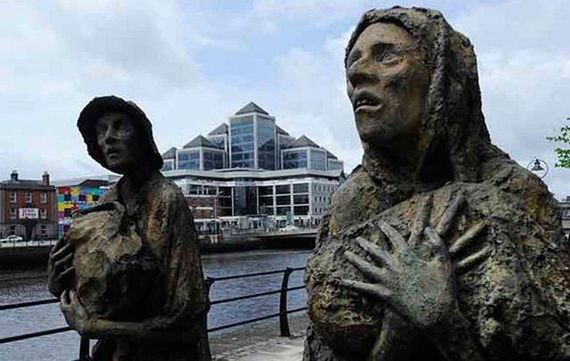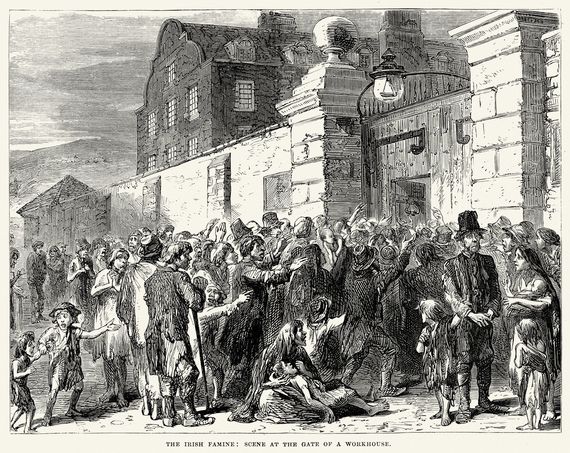An Irish studies lecturer at the University of Southern Maine has insisted that the Great Famine should be taught in U.S. schools in the same vein as teachings about The Holocaust.
Robert F. Lyons, who is of Irish descent, made the suggestion on the grounds that the Holocaust Curriculum Bill, which passed in his state, should be expanded to cover other historical tragedies and atrocities.
Read more: Teeth reveal important clues into diet of famine Irish
He argues that the Great Famine, which resulted in the deaths a million Irish men, women and children, and led to the emigration of two million others, should be included in curriculums because it covers a topic which explores, among other things, the racial hatred which many Irish immigrants received upon arrival in America in the mid-1800s.

A Famine memorial on the quays of the River Liffey, in Dublin.
"The Holocaust Curriculum Bill should be expanded to mandate the study of other horrific episodes of national policies which deliberately and systematically strip people of even the least semblance of basic human freedom and dignity and life itself," Lyons said.
"The teaching of the Holocaust and genocide and the Irish Famine will help our students form a conscience that affirms that our state’s ethnic, religious and cultural diversity remains one of its strengths."

The Great Hunger memorial, in Battery Park, New York.
Lyons says he wants the nation to follow the example set in New York, which sees a study of the European Holocaust in the World War II period included alongside a study of the mass starvation of Ireland from 1845 to 1850, as well as slavery in the Americas and the Atlantic slave trade.
Read more: Irish population was in serious decline before the Vikings arrived
"The linking of these two searing episodes in the life histories of six million European Jews who died as victims of Nazi persecution, and one million Irish who died during the Great Hunger with an estimated two million forced to emigrate as result of England’s 19th Century laissez-faire economic policy will always stimulate great debate and heat," he added.

Irish queuing outside a workhouse during the Irish Famine.
"But few would argue that 'the hunger-stricken exodus of people from the island [Ireland], speaks of the odor of racial hatred surrounding the emigrant’s treatment. It bears more resemblance to the slave trade or the boxcars of the Holocaust than to the routine crossings of a later age,” according to Robert Scally in The End of Hidden Ireland.
What do you think? Should the Irish famine be taught in the United States? Let us know in the comments section below.
Read more: This is the oldest known photo of an Irish famine survivor




Comments